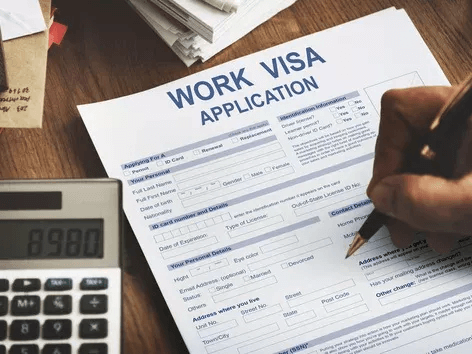The UAE has quickly become a global hub for digital commerce, with online retail sales projected to cross AED 27 billion by 2025. Thanks to high internet penetration, a tech-savvy population, and government-driven digital transformation, e-commerce is thriving across the Emirates.
Whether you’re a local entrepreneur or an expat planning to launch an online store, you’ll need an e-commerce licence to operate legally. This licence allows you to sell products or services online through websites, social media, or third-party platforms like Amazon.ae and Noon.
In this guide, we’ll walk you through everything you need to know about applying for an e-commerce licence in the UAE – from choosing the right jurisdiction to preparing documents, estimating costs, and submitting your application.
Step 1: Understand What an E-Commerce Licence Covers
An e-commerce licence is a trade licence issued by either a mainland authority (like the Department of Economic Development – DED) or a free zone authority.
It allows you to:
- Sell physical goods online (clothing, electronics, beauty products, etc.)
- Offer digital services (consulting, coaching, IT services, etc.)
- Operate through your own website, social media platforms, or marketplaces
- Import/export products and store them in warehouses
👉 Without this licence, running an online business in the UAE is considered illegal.
Step 2: Choose Between Mainland and Free Zone
Where you apply for your e-commerce licence depends on your business model and target audience.
Mainland Licence (DED)
- Issued by the Department of Economic Development in each Emirate
- Allows you to sell directly to UAE customers without restrictions
- Lets you work with local suppliers and distributors freely
- Suitable if you plan to scale within the UAE and want flexibility
Free Zone Licence
- Issued by dedicated free zone authorities (e.g., Dubai CommerCity, Sharjah Media City, RAKEZ)
- Offers 100% foreign ownership and tax exemptions
- Faster and more cost-effective setup
- Requires hiring a local distributor if you sell directly in the UAE mainland
Quick Tip:
- If your target is primarily UAE consumers, go for a mainland licence.
- If you’re targeting international sales and want lower setup costs, choose a free zone licence.
Step 3: Choose the Right Business Activity
When applying, you must specify your business activities. For e-commerce, some common ones include:
- E-trading in physical goods
- Online services and consultancy
- Digital content creation and marketing
- Marketplace operator (like running a platform where others sell)
Selecting the correct activity ensures compliance and avoids legal issues later.
Step 4: Select a Trade Name
The UAE has strict naming rules for businesses. Your e-commerce brand name must:
- Be unique and not already registered
- Avoid offensive or religious words
- Not reference political groups or organizations
- Reflect your business activity
You can check name availability through the DED or free zone portal.
Step 5: Prepare the Required Documents
To apply for an e-commerce licence, you’ll need:
- Passport copy of the owner(s)
- Emirates ID copy (for residents)
- Recent passport-size photographs
- Proof of residence (utility bill or tenancy contract)
- Initial approval form (provided by authority)
- Business plan (required in some free zones)
Step 6: Apply for Initial Approval
Before getting your licence, you must obtain initial approval from the chosen authority. This step confirms that your business activity and trade name are acceptable.
In most cases, this can be done online through the DED portal or free zone authority’s website.
Step 7: Get Office Space or Flexi-Desk
Even though e-commerce businesses operate online, you still need a registered office address in the UAE.
Options include:
- Renting a physical office (required for some licences)
- Choosing a flexi-desk package in a free zone (affordable and convenient)
- Using an Ejari tenancy contract (for mainland setups)
Step 8: Submit Final Application and Pay Fees
Once your initial approval is cleared and documents are ready, submit your final application along with the licence fee.
Estimated Costs:
- Mainland e-commerce licence: AED 10,000 – AED 15,000 (varies by Emirate)
- Free zone e-commerce licence: AED 5,750 – AED 12,000 (packages vary by zone)
- Additional costs may include:
- Trade name reservation: AED 600 – AED 1,000
- Office rent: AED 10,000+ per year (mainland)
- Visa costs: AED 3,000 – AED 7,000 per person
Step 9: Apply for Visas
An e-commerce licence allows you to apply for residency visas for yourself, family members, and employees.
- Free zones typically allow 1–6 visas depending on your office size
- Mainland licences allow unlimited visas (linked to office space)
Step 10: Open a Corporate Bank Account
To receive payments and manage finances, you’ll need a UAE corporate bank account.
Required documents usually include:
- Trade licence copy
- Shareholder passports and visas
- Company incorporation documents
- Business plan (in some cases)
Popular options include Emirates NBD, Mashreq, ADIB, and digital banks like Wio.
Step 11: Set Up Payment Gateway and Logistics
To start selling online, integrate:
- Payment Gateway: PayTabs, Telr, Stripe, or PayFort (for secure card payments)
- Logistics Partner: Aramex, DHL, Fetchr, or local courier companies for delivery
- E-Commerce Platform: Shopify, WooCommerce, or Magento
Benefits of Having an E-Commerce Licence in the UAE
- 100% legal compliance – operate safely without penalties
- Access to a booming digital market – UAE has one of the highest online spending rates in MENA
- Easy expansion – add more products or services under the same licence
- Residency visas – live and work in the UAE with family sponsorship
- Global reach – use UAE’s logistics network to ship internationally
Common Mistakes to Avoid
- Choosing the wrong jurisdiction (mainland vs free zone)
- Misclassifying business activity
- Skipping trademark registration for your brand name
- Underestimating setup and renewal costs
- Failing to set up a proper payment gateway
1. How long does it take to get an e-commerce licence in the UAE?
In most cases, it takes 3–7 working days once all documents are submitted and fees are paid. Free zones may issue licences even faster if you choose an express package.
2. Can I sell on Amazon or Noon with an e-commerce licence?
Yes. An e-commerce licence allows you to register as a seller on platforms like Amazon.ae, Noon, and other UAE-based marketplaces. You will need to provide your trade licence and bank account details during seller registration.
3. Do I need a local partner to start an e-commerce business?
- Mainland: You no longer need a UAE national partner; foreigners can own 100% of the business under updated laws.
- Free zone: Always allows 100% foreign ownership.
4. Can I run an e-commerce business from home?
Yes, as long as you have a valid e-commerce licence. You’ll still need to register a trade name and office address (which can be a flexi-desk or virtual office in many free zones).
5. How much does it cost to renew an e-commerce licence?
Renewal costs are usually similar to setup costs:
- Mainland: AED 10,000–15,000
- Free zone: AED 5,000–12,000
Exact fees depend on jurisdiction and added services (office, visas, etc.).
6. What payment gateways can I use for online sales in the UAE?
Popular options include PayTabs, Telr, PayFort, Stripe, and WioPay. Your choice depends on your platform, target customers, and transaction fees.
7. Can I apply for an e-commerce licence as a freelancer?
Yes, many free zones offer freelancer e-commerce packages that allow individuals to sell products or services online without needing a large company setup.
Applying for an e-commerce licence in the UAE is a straightforward but structured process. From selecting the right jurisdiction and business activity to preparing documents, paying fees, and setting up operations, each step is crucial for success.
The good news? The UAE government has simplified online business registration, making it easier than ever to launch your digital venture.
Whether you’re selling handmade crafts, launching a dropshipping store, or offering professional services online, having an official e-commerce licence positions you to tap into one of the fastest-growing digital markets in the world.
If you’re unsure about the best route – mainland or free zone – consider consulting a business setup advisor who can guide you through the process and help you avoid costly mistakes.



